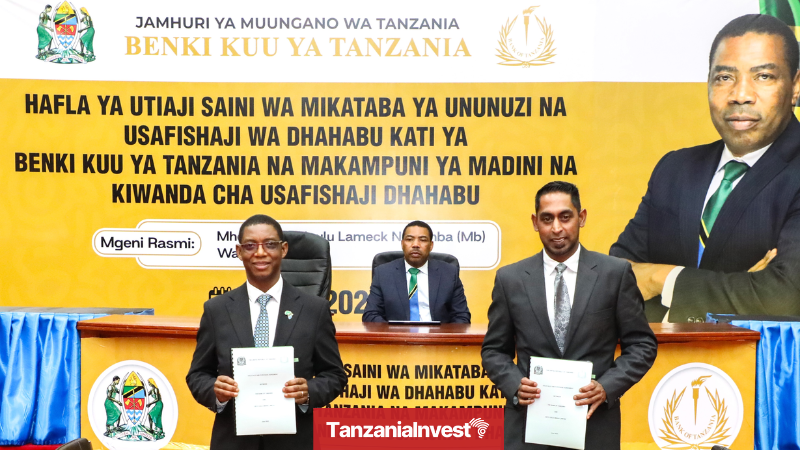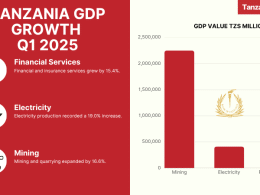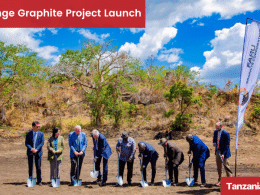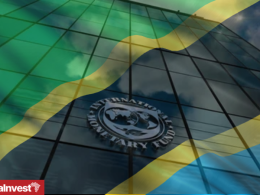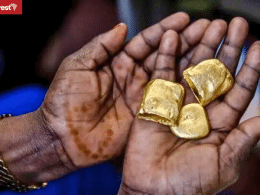On 16 June 2025, the Bank of Tanzania (BoT) signed agreements in Dodoma with four gold producers and refiners to acquire 20% of their annual output, as part of the government’s efforts to strengthen foreign reserves, enhance domestic value addition, and reduce reliance on external borrowing.
The contracts were signed between BoT and Geita Gold Mining, Shanta Gold Mining Company, Buckreef Gold Company, and Geita Gold Refinery (GGR), in the presence of Finance Minister Dr. Mwigulu Nchemba, Minister of Minerals Antony Mavunde, and BoT Governor Emmanuel Tutuba.
The gold purchase programme forms part of the national strategy introduced during the 2022/2023 financial year to build Tanzania’s financial resilience through the mining sector and ensure stable sources for the central bank’s gold reserves.
Finance Minister Dr. Mwigulu Nchemba stated that the agreements are part of the implementation of Section 59 of the Mining Act, which requires miners to allocate 20% of their production for sale in local markets, including to the BoT, which holds the legal mandate to purchase gold.
He said, “This step will enable the Central Bank to obtain reliable sources in achieving its gold purchase program and will help local gold refining industries achieve the goals of obtaining international accreditation by the London Bullion Market Association (LBMA).”
Dr. Nchemba also highlighted that the gold purchase plan is a government commitment led by President Samia Suluhu Hassan to ensure sufficient foreign exchange reserves, increase the minerals sector’s contribution to national income, and maximise domestic mineral value addition.
He noted, “To date, the Central Bank of Tanzania has purchased 5 tonnes of gold equivalent to USD 554 million, exceeding its target of purchasing gold worth USD 350 million. This step is significant and historic for our country, as it will ensure that we have enough gold in the country for refining by existing industries in the country, but also to provide it to the Central Bank of Tanzania, which has decided to purchase and hold gold as part of foreign exchange reserves.”
Dr. Nchemba called on all stakeholders to ensure the sustainability of the gold-buying strategy and underlined the increasing gold price as an opportunity for building national reserves.
Minister of Minerals Antony Mavunde said the mining sector’s contribution to GDP has risen from 9.0% in 2015 to 10.1% in 2024/25.
He noted that annual contributions from the sector to the Government Consolidated Fund have increased from TZS 162 billion to TZS 753 billion since the legal amendments, with a target of reaching TZS 1 trillion.
BoT Governor Emmanuel Tutuba explained that the central bank launched the Gold Purchase Program in the 2022/23 financial year to implement the National Strategy to reduce reliance on external loans and boost the country’s financial independence.
He reported that, as of 13 June 2025, the BoT had acquired 5,022.85 kg of pure gold worth approximately USD 554.28 million, surpassing its 2024/25 target of increasing reserves by USD 350 million.
Governor Tutuba added that the programme aims to further strengthen the resilience of the country’s foreign exchange reserves.
The four companies involved welcomed the initiative, thanking the government for supporting the sector and pledging continued cooperation to expand mining’s economic impact.
The current policy follows proposed amendments to Section 59 of the Mining Act, presented by Dr. Nchemba in Parliament on 12 June 2025 during the 2025/2026 national budget session.
The amendments would require all mining companies with government contracts to allocate 20% of gold output for domestic refining and trade, aligning the requirements for all companies.
Under the proposed legal changes, affected companies must finalise contract amendments within 30 days of the Finance Act’s enactment.
The programme is aligned with Tanzania’s long-term strategy to become a regional hub for gold refining and trade, as well as to curb the export of unprocessed minerals.





